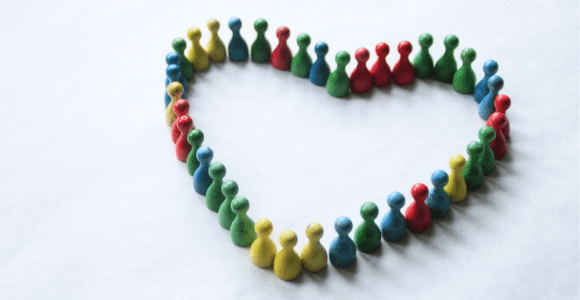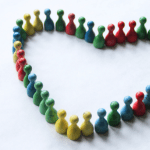Welcome readers! Please subscribe through the button on the right.

Our reading this week is from the gospel of Luke:
“But to you who are listening I say: Love your enemies, do good to those who hate you, bless those who curse you, pray for those who mistreat you. If someone slaps you on one cheek, turn to them the other also. If someone takes your coat, do not withhold your shirt from them. Give to everyone who asks you, and if anyone takes what belongs to you, do not demand it back. Do to others as you would have them do to you. If you love those who love you, what credit is that to you? Even sinners love those who love them. And if you do good to those who are good to you, what credit is that to you? Even sinners do that. And if you lend to those from whom you expect repayment, what credit is that to you? Even sinners lend to sinners, expecting to be repaid in full. But love your enemies, do good to them, and lend to them without expecting to get anything back. Then your reward will be great, and you will be children of the Most High, because he is kind to the ungrateful and wicked. Be merciful, just as your Father is merciful. Do not judge, and you will not be judged. Do not condemn, and you will not be condemned. Forgive, and you will be forgiven. Give, and it will be given to you. A good measure, pressed down, shaken together and running over, will be poured into your lap. For with the measure you use, it will be measured to you.” (Luke 6:27-38)
No other section of Luke’s version of the Jesus story has a denser concentration of the rich teachings that Jesus’ early followers attributed to him than this passage. There is so much for us to unpack this week in these eleven verses, so let’s dive right in.
Enemy Love
Right away, I want to unequivocally reject any interpretation that demand we feel some kind of love or positive emotion toward our abusers or oppressors. That interpretation only furthers the harm that abusers and oppressors have committed against survivors.
So how are we to interpret Jesus’ teaching to love our enemies?
One possibility that deeply resonates with me is Barbara Deming’s two hands metaphor for nonviolence:
“With one hand we say to one who is angry, or to an oppressor, or to an unjust system, ‘Stop what you are doing. I refuse to honor the role you are choosing to play. I refuse to obey you. I refuse to cooperate with your demands. I refuse to build the walls and the bombs. I refuse to pay for the guns. With this hand, I will even interfere with the wrong you are doing. I want to disrupt the easy pattern of your life.’ But then the advocate of nonviolence raises the other hand. It is raised outstretched – maybe with love and sympathy, maybe not – but always outstretched . . . With this hand, we say, ‘I won’t let go of you or cast you out of the human race. I have faith that you can make a better choice than you are making now, and I’ll be here when you are ready. Like it or not, we are part of one another.’” (in Pam McAllister, You Can’t Kill the Spirit, p. 6-7)
Enemy love means we can still hold those who harm us accountable, and in so doing, we need not lose hold of their humanity or our own. It leaves room for those who have harmed us to choose to change, too. Enemy love doesn’t mean we feel something warm and fuzzy for those who have harmed us. It means we view them as still humans, still part of our human family, and because of that do not allow them to continue committing acts of harm while we wait for them to change.
(Read Part 2)














